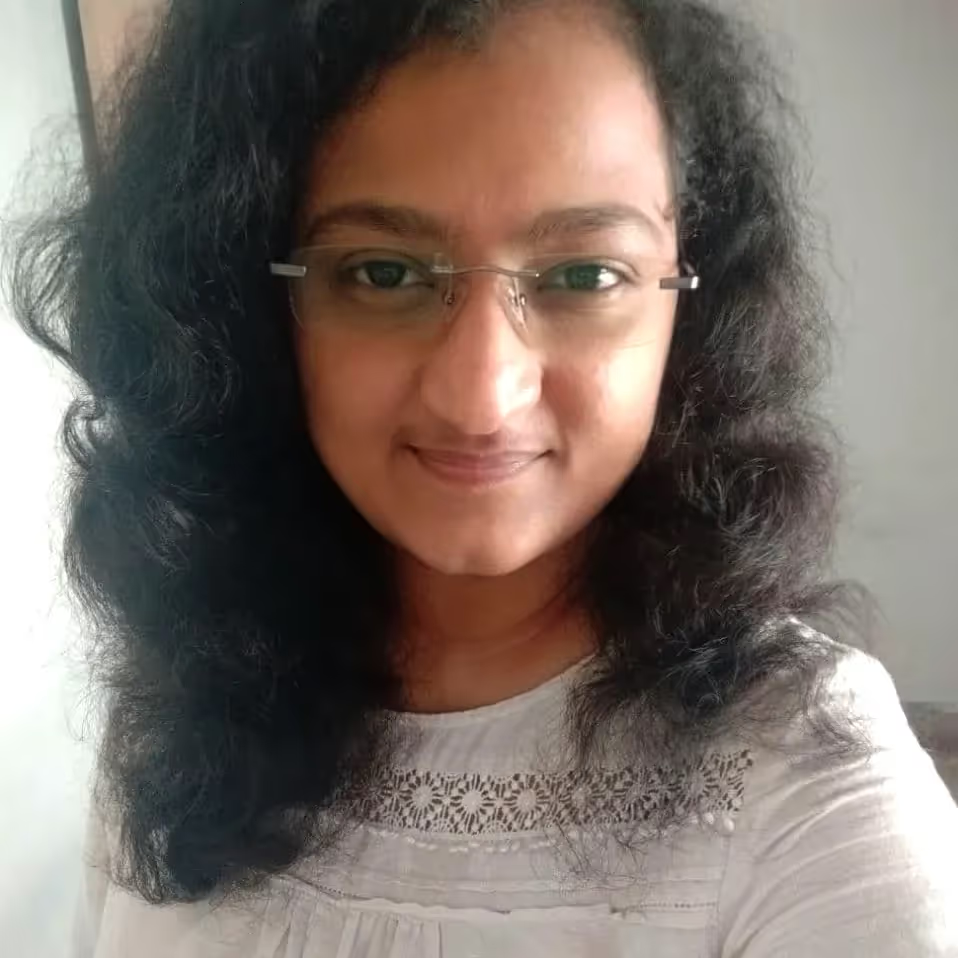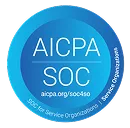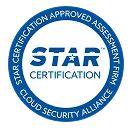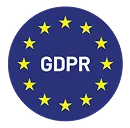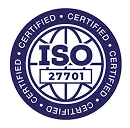In this episode of The Launch Station, we are joined by Michael Canzoneri, ex-Confluent, and currently VP of Global Services at Dataiku. Michael drove some of the most disruptive and innovative big data solutions across multiple industries for Confluent. He led multi-year, global transformative projects in retail, aerospace, defense, and oil & gas. Michael also develops strategies and positions companies for dramatic growth.
After studying data sciences at Harvard and Quantum Computing at MIT, Michael went on to do his MBA from Villanova. He talks to us about:
- How professional services are positioned and operated at Confluent
- How the PS landscape evolved at Confluent
- Why strategy isa key element from a PS perspective
- What are some effects of the change
… and more.
Check out our conversation below.
Sri: Welcome to another episode of the Launch Station. Today, we have an interesting topic to discuss in the realm of professional services. Our focus for this episode is "knowing your landscape."
Joining us as our guest for the episode is Michael Canzoneri, who brings a wealth of knowledge and experience from both academia and his professional career. Michael holds the role of Practice Director at Confluent, where he spearheads groundbreaking big data solutions across various industries. He has successfully overseen transformative projects on a global scale in retail, aerospace, defense, and oil and gas. Michael excels in developing strategies that fuel significant growth for companies. He he holds an MBA from Villanova and has pursued studies in data sciences at Howard University, as well as quantum computing at MIT. Welcome, Michael!
Michael Canzoneri: Thank you for inviting me. I want to mention something that I always bring up when mentoring others. Even though I may have discussed my education at Villanova, Harvard, or MIT, the truth is, I am a proud Penn Stater. My loyalty lies with the blue and white. I completed my undergraduate degree at Penn State, so everything in this house represents my alma mater. Penn State holds a special place in my heart.
Sri: The loyalties are with Penn State clearly. Now, for those unfamiliar with Michael, he has experience in both theater and writing. Let's kick off our conversation with a quick question.
Screen adaptations of books can be very divisive, right? If given the choice, would you prefer to take on the task of adapting a book into a screenplay or crafting an original screenplay from scratch?
Michael Canzoneri: This is a great question. I have a different perspective on it. I have won several film festivals for the screenplay of "Limo Cop" that I wrote with my friends. But I have also enjoyed the process of adapting a book into a screenplay. Recently, I have also started writing books. What I have noticed is that in both screenplays and books, what you see on a page is only about 10% of what I write. For instance, my first book was a Star Wars fan fiction, and I wrote about four to five hundred pages before even starting to write a page for the book. This was because I needed to develop the characters, and plot, and ensure a cohesive flow throughout. Today, we will be discussing a similar topic, but from a unique perspective. I like to think about how different players come together, such as in the landscape of Confluent’s Data in Motion. This mindset was also influenced by my time at Gartner.
Considering all this, I would suggest adapting a book as a starting point, as it provides source material to build upon.
Sri: It would likely be equally challenging if not more so, to determine what to include and exclude. It's great that you intend to draw some interesting parallels throughout our conversation. So you have a diverse background, beginning as a Java developer and now leading a professional services practice. Could you please share with our viewers and listeners how this journey unfolded?
Michael Canzoneri: Yes, it has been quite a unique and interesting journey for me. It all started when I enrolled for an Astral Physics major at Penn State. However, I soon realized that I would need to continue my education for many more years before I could truly start my career. So, I made a shift and pursued a major in Operations and Information Systems Management. It fascinated me because it involved process engineering. Interestingly, the term "thinking out of the box" actually originated from this field. A box represents a process and the focus is on finding ways to improve it by thinking outside it. After changing my major, I received a job offer out of the blue to become a Java developer. It's funny how the place that offered me the job is only half a mile away from my current residence, even though it was over 20 years ago.
From there, I worked with Java and then moved on to a small consulting firm. I was laid off twice within the first year and a half after graduating due to the dot-com bubble and the 9/11 events. So, I found myself searching for a new job and ended up joining a two-person consulting team. Over time, we expanded the team to over 200 people, and I stayed there for about eight years, focusing on implementation work. However, I started feeling the need for a more strategic role, and coincidentally, an old customer of mine who was working at Gartner offered me a job in their advisory team. I worked there for about four years before venturing out on my own for a few years. Along the way, I also felt the desire to gain experience in Silicon Valley. Out of nowhere, DataStax, the Apache Cassandra company, contacted me, and I spent three years there.
I felt it was time for a change again, and that's when Confluent came knocking on my door. I recently celebrated my three-year anniversary with them. Throughout my career, I have also worked on various side projects, such as running a real estate investment company and being part of several small startups. Overall, I consider my career to have been both enjoyable and interesting.
Sri: Yeah, I found it very interesting when you mentioned this before. It is fascinating to see how everywhere you went, a previous customer or someone you were engaged with, led you to a new opportunity.
Michael Canzoneri: Yeah, never underestimate the power of your network.
Sri: So, what are the key areas of focus when it comes to your work at Confluent in the professional services space? What are you focused on evolving there?
Michael Canzoneri: My role has five pillars that I focus on every day. The first pillar is the team, where I constantly assess their progress and evaluate their fit within the company. The second pillar is strategy, where I ensure that we are providing the right products and services to our customers and staying competitive in the market. The third and fourth pillars are the sales and building components. The final pillar is operations, where I ensure that everything runs smoothly and efficiently.
I constantly switch between these pillars throughout the day. However, I prioritize the team as my primary focus, followed closely by strategy. I spend a significant amount of time looking ahead to the future, predicting and preparing for where we are headed as a company and how we can stay ahead of our competition. This aspect of my job involves a lot of reading and predicting the future, and only time will tell if my predictions are accurate.
Sri: Yes, when considering professional services and talking to others, optimization, operations, people development, utilization rates, profitability, and repeatability are the often discussed topics. It's interesting that you mentioned strategy as the second area of focus after people. Why is strategy important from a professional services perspective? Is it something that the product team prioritizes more? And, how does it contribute to the overall goals of the company?
Michael Canzoneri: I find the book "Good Strategy, Bad Strategy" very philosophical. I interact with large consultancies daily, such as Accenture, Deloitte, and regional consultancies. They are often referred to as system integrators (SIs). One thing that stands out to me about these consultancies is the commoditization of their services. For example, SQL development has become a ubiquitous and standardized language. It is difficult for consultancies to differentiate themselves based on the quality of their SQL developers. Instead of boasting about their superiority, consultancies need to offer something unique to their customers.
For instance, if a customer needs a thought leader or assistance with data in motion, they would be better off going to experts who focus solely on that. I spend a lot of time considering how to enhance our professional services to align with the rapidly evolving ecosystem of event streaming and data in motion, which is heavily centered around Confluent and Kafka. To distinguish ourselves from other consultancies, especially in the case of highly technical products like Confluent/Kafka, we need to go beyond the technical aspects and focus on what truly sets us apart. And for those of you who don't know, Confluent was founded by the three founders of Apache Kafka. In a product company, they talk about making their product "sticky" by using their intellectual property (IP) to make it stand out. Similarly, I see professional services in the same light – we need to leverage our own IP to make our services stand out.
Sri: I understand. On the technical side, there should also be a service offering that demonstrates the product's value to the customer. Can you provide an example of what these offerings might entail? For instance, what would it look like if there was no strategy involved, versus offering a unique and differentiated service?
Michael Canzoneri: You can witness this common scenario in large organizations. Recently, I had a conversation with a former colleague who now holds a senior position at a large bank. He oversees the shared service organization and proudly mentioned the abundance of databases they possess. Being a technology or product company, this situation can prove challenging. The end user is left to select from a wide array of options presented before them, such as databases or other products.
Ultimately, someone will choose a product based on what they've read or heard about. However, our approach at Confluent differs from this viewpoint. It's not solely about the technology itself but also the people and processes involved. I often joke about the cliché consulting answer that emphasizes people, process, and technology. Yet, we have discovered that the focus should truly be on the people. We aim to empower individuals and define their roles when it comes to data in motion.
Our extensive efforts revolve around helping customers advance and mature in their understanding and usage of data in motion. We guide them from the initial stages of infancy to becoming an industry-leading, cutting-edge organization. This unique approach sets us apart as it's not just about transferring data efficiently, but also utilizing the product's capabilities to achieve far more than mere point A to point B data transfer.
Sri: It would be great if you could walk us through the transformation journey you experienced during your three years at Confluent. How was Professional Services positioned and operating in the past, and what changes have you implemented to adapt to the evolving landscape?
Michael Canzoneri: Yeah, I have to admit, it wasn't a quick process. And I'll be honest with everyone about that. In the beginning, most of our focus was on workshops. So if you were a big bank, for example, and you wanted an architectural design session, we would offer a week-long session with one of our solution architects. That was our main offering at the time. When I joined as employee number 500-something, we were primarily selling these workshops. But as our customer base grew, we realized their needs were changing. It was like the book "Crossing the Chasm" by Geoffrey Moore perfectly described our situation at Confluent.
We were used to dealing with innovators and early adopters, but as we reached the majority of customers, their needs became very different. The workshops alone weren't enough anymore. We had to develop more customized solutions. Then, we started to attract large organizations that wanted to know how to scale our services. They had already implemented Centre of Excellence with other technologies like SAP and Oracle, and they wanted to do the same with us for data in motion. This demand from the customers guided us in developing what we now call a "data in motion blueprint" or DIMBP, which helps customers rapidly advance from an early stage of maturity to a more advanced stage.
It was a push-pull dynamic, where customers would pull us in a certain direction, and we would develop and offer new solutions based on their needs. This opportunistic approach was supplemented by our leadership team observing the market and identifying what our biggest customers were asking for. We would then develop those solutions and make them available to customers of all sizes. This process is still ongoing and will likely continue for several more years, given where we are in our company's journey. It's a common pattern for successful startups to evolve based on customer needs, and we were proactive in trying to anticipate those needs and provide a more prescriptive approach.
Sri: I understand. Have you noticed any formalization resembling the concept of a maturity model, taking into account the changing demands of customers?
Michael Canzoneri: Yeah, we had the customer maturity model, very early on. And, when I talk to customers about it, I make fun of it. And the reason I make fun of it is because you've seen that maturity model – in every other organization, every product company you've ever dealt with.
At Confluent. we’ve created five levels, basically, from early awareness to central nervous system levels.We've taken a step back and said, “Okay, looking at the hundreds of projects we've delivered, what does it mean to be a Level One? What capabilities do you need for you to be successful in each level?”
And then we did several things with each of those capabilities. We defined what it was, why it's important, who's involved, the prerequisites, the actual steps to implement it, the outcomes, the training, and when we need to implement that capability. We did that for 50 or so capabilities. And we recently released the book, “The Definitive Guide to Data in Motion”. The book contains exactly that. It talks about how you get from Level One, to Level Five, from a technology perspective, not necessarily a people-process perspective, although that’s sprinkled in there, too.
Sri: As you have matured in the use of professional services and gained a better understanding of your surroundings, what are some of the unintended consequences of the changes that have occurred, and how has this influenced your strategy for the future?
Michael Canzoneri: The skills required in a company are constantly changing, especially in technical roles. From my experience working with various technical product companies, I have observed that in the early stages, the focus is on highly skilled technical individuals who are dedicated to technology. However, as the company matures and the product becomes more refined based on customer feedback, the need for soft consulting skills becomes apparent. This shift is particularly evident when the company reaches the early majority stage, where customers often prefer user-friendly solutions.
Managing expectations and providing consulting support become essential skills. Initially, the primary goal is to deliver a functioning system, without necessarily considering the bigger picture or enabling every possible feature. As customers evolve, the balance between providing a working system and empowering them to become self-sufficient becomes crucial. This requires technical experts to step back and consider how to explain complex concepts to non-technical stakeholders. Like explaining the terms "topic," "producer," or "customer" concerning tools like Confluent or Kafka, or communicating cloud networking and security requirements to the security team. As a company and team evolve, a natural balance of skills emerges to meet the evolving needs of the customer and the organization.
Sri: This makes a lot of sense. As you need to hire more people, will you find more people with consulting skills, rather than deep technical expertise in your product?
Michael Canzoneri: Currently, I believe that because of the "great resignation", it has become increasingly challenging to find talented individuals. Given this, I often advise people that my hiring philosophy is quite straightforward. I prioritize individuals who have a combination of technical skills and a strong personality over those who solely possess technical expertise.
In most cases, technical knowledge can be taught, but not the soft skills required to provide exceptional customer service. Through my own consulting experience, I have observed that individuals who are highly intelligent but lack interpersonal skills often struggle with customer interactions. Conversely, those who possess a pleasant personality, ask insightful questions, and are open to learning tend to be well-received by customers. Ultimately, these individuals are repeatedly requested by clients due to their collaborative and easy-going nature.
Sri: Certainly, that makes perfect sense. Have there been any instances in the past few years when you had to seek approval from upper management regarding important decisions related to teams or the strategic direction of the PS organization?
Michael Canzoneri: Here's something funny I've learned over the past decade. It's not enough to just get top management on board. Throughout my experience working in product companies in Silicon Valley, I've discovered that it's crucial to have the whole team understand the vision. I've had both successes and failures in this aspect. It's important to carefully consider the messaging and communication style. Particularly as the team grows, which has been the case for us in the past three years with an increase in team members spread across the country. Each processes information differently, preferring written communication, emails, slides, one-on-one conversations, or attending all-hands meetings.
I've learned to adapt and consistently communicate using a variety of styles. Getting buy-in from the top management is not as difficult as gaining support from the entire team and other stakeholders involved in the process.
Sri: What was the hardest decision you had to take to get buy-in on with the team?
Michael Canzoneri: When growing in a hyper-growth company, there are consistently challenging situations, although it's difficult to pinpoint the hardest. One area where I have noticed my shortcomings is in making assumptions. I assumed that people were aware of certain factors when making decisions, but in reality, they may not have been. It's not just one difficult decision that stands out, but rather a series of challenging choices that I didn't fully grasp at the time. This has made me more aware of the importance of effective communication. There have been instances where I spoke to someone about something I assumed they already knew, only to discover they had no knowledge of it.
This has prompted me to pause and reflect on whether I communicated my thoughts effectively. This is particularly crucial in a hyper-growth company. Managing growth is incredibly difficult, as your focus is often on immediate tasks, while important but non-urgent matters tend to get left behind. Finding the balance between the two is crucial, as neglecting the latter can have consequences down the line. It requires foresight to recognize the importance of certain tasks that may not be urgent in the present and to continue pushing them forward while effectively communicating the reasoning behind them. These are some of the lessons I have learned over the years.
Sri: That is excellent advice, with valuable insights on navigating high-growth environments. I have personally witnessed this at FreshWorks, as well as at Rocketlane. These can be seen as happy challenges, but they still require careful resolution.
Michael Canzoneri: Yeah, exactly. Happy challenges.
Sri: Let's move on to the next segment of our podcast. This is going to be a quick rapid-fire round. What habit did you adopt in 2021 that you plan on carrying into 2022?
Michael Canzoneri: I usually read around 20 books every quarter. However, I've recently decided to significantly reduce that number and instead focus on reading four or five books on a single subject. This allows me to gain multiple perspectives and delve deeper into the topic. Last quarter, I did this with Stoic philosophy, and for this quarter, I am revisiting my MIT days by studying the mathematical aspects of quantum physics.
Sri: What's one trend you think we'll see in the project management space in the next few years?
Michael Canzoneri: Project management is transforming to a more player-coach approach. This is evident in our engagement or project managers, who go beyond the traditional role. They are highly skilled communicators, engaging with customers and having a good understanding of the technical aspects. It is no longer just about creating work breakdown structures, but also about being a subject matter expert and guiding the team by foreseeing potential challenges and issues.
Sri: That’s interesting. What comes to mind when I say leadership?
Michael Canzoneri: The name Eisenhower comes to my mind. I've been reading a little bit about World War Two and earlier, I briefly mentioned Eisenhower, who played a significant role in that era. There is a concept called the Eisenhower matrix, which categorizes tasks into four quadrants based on their importance and urgency. This concept is covered in the book "Seven Habits of Highly Effective People," which is considered a classic.
Sri: What comes to mind when I say customer?
Michael Canzoneri: Numerous things come to mind, all of which are of utmost importance to me. Primarily, I wonder if this customer is receiving what they need. This question always arises almost instantly.
Sri: We have one question from our community Preflight. What are the top three metrics you look at, for your team as a whole? And has that changed over the years?
Michael Canzoneri: Previously, my main focus in a classical consulting organization used to be revenue utilization. Nowadays, it's not just about the metrics themselves. What matters more is whether my team members have a clear career path and are experiencing personal growth. This aspect is more subjective and challenging to quantify, but it is what concerns me the most. I constantly think about how my team members are developing and if they are accomplishing their personal and professional objectives.
Sri: I'm sure your team would be happy to hear that. One last question. What's one piece of advice you would share with a leader who's going through the same growth journey as you?
Michael Canzoneri: I'll give two if that's all right. The first one is easy: find a mentor. And the second one is a piece of advice I've followed for many years now and I find to be exceptionally helpful. It’s not something that most leadership people talk about. It’s journaling. I found that journaling for 10 minutes every morning, helps me to clear my head and gets me ready for the day. So especially if you're a very dynamic organization, very fast-paced, you have so much going on, you need a way to center yourself, and maybe it's meditation for some people but for me, it’s journaling.
Sri: I believe it's great that everyone will have their perspective on this. Adding journaling as an option for reflection is an interesting idea. It allows you to look back in time and see how you have grown and reflected in the past. It's something worth exploring.
Thank you for taking the time to chat with us today, Michael. It has been very insightful and you provided a lot of ideas for leaders. We hope you continue to read and share your thoughts with us.
Michael Canzoneri: I hope so too. Thank you so much for having me over at The Launch Station today, Sri.
